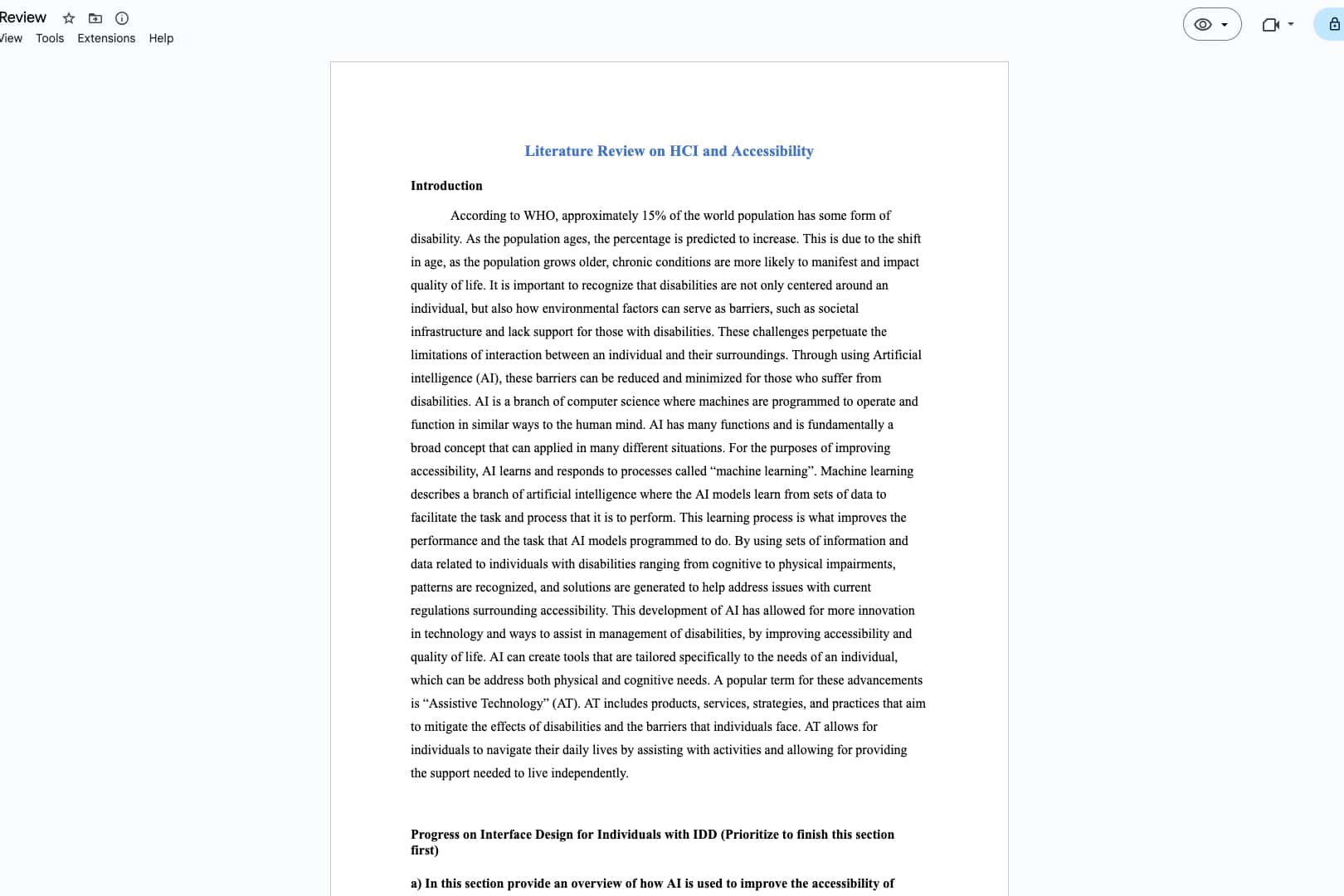Key facts
- Artificial Intelligence Enhancing lives
- Tech Inclusivity Barrier reduction
- Global Influence Wider reach
- Innovative Solutions AI-driven change
- User Adaptation Personalized AI
- Accessible Design Clear interfaces
The intersection of AI and Assistive Technology to improve life for individuals with disabilities.

Artificial Intelligence plays a pivotal role in assisting individuals with disabilities. This includes machine learning techniques to recognize patterns in data related to various disabilities, thereby tailoring solutions to improve accessibility and quality of life. Assistive Technology encompasses products and services that aim to mitigate disability effects, enabling living and daily activity navigation.
The advancement of AI has revolutionized interface design, making web applications more accessible to individuals with Intellectual and Developmental Disabilities. Emphasizing inclusive design, AI algorithms process data to create features that cater to diverse needs. This includes physical disabilities like visual and hearing impairments, and a wide range of cognitive disabilities.
The integration of Artificial Intelligence with the Internet of Things (AIoT) has enhanced Assistive Technology capabilities. By analyzing data from IoT devices, AIoT identifies patterns to address disability-related challenges, leading to innovative solutions like navigation systems for the visually impaired and sign-based communication systems.
Voice Intelligent Assistants such as Siri, Alexa, and Google Assistant utilize AI for text-to-speech and speech-to-text functionalities. These tools provide essential support for individuals with visual, auditory, or motor impairments, facilitating easier access to device features and services.
AI ability to identify user interface patterns enables the creation of more user-friendly and personalized experiences. This includes features like Auto Correct, which assists those with cognitive or motor impairments. The adaptability of AI software is crucial in various applications, such as educational platforms tailored to individual needs.
Several projects demonstrate AI potential in improving interface design for accessibility. These include the AUDiaL project for aiding visual impairments through natural language, the WebAdapter Project for adapting web functionalities, and Endeavor Connect, a simplified Facebook interface for individuals with Intellectual Disabilities. They showcase the diverse applications of AI in creating inclusive environments.
Be part of a movement that’s reshaping how we think about technology and accessibility. By integrating AI with the unique needs of the IDD community, we're crafting solutions that matter. Your support and interest can make a big difference in pushing this important work forward.